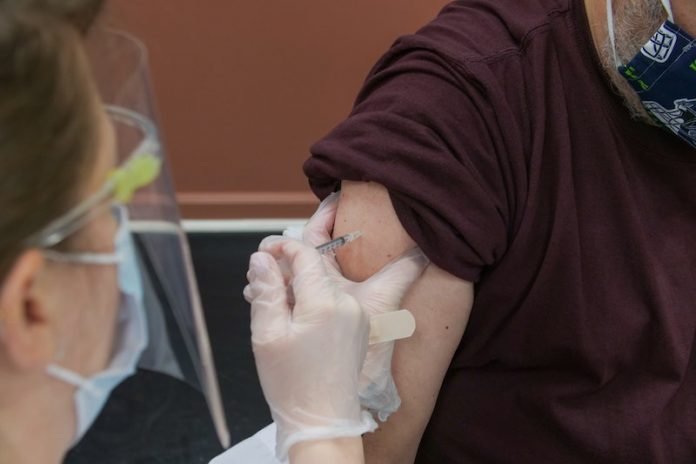
Despite their strong effectiveness against SARS-CoV-2, mRNA-based COVID-19 vaccines are associated with adverse post-vaccination effects, such as fatigue; how can this be avoided?
Scientists from Duke–NUS Medical School found that people vaccinated for COVID-19 had distinct molecular characteristics linked to an increased likelihood of post-vaccination fatigue.
They also found that switching the vaccine injection strategy could potentially ease such adverse effects.
The research is published in PLOS Biology and was conducted by Ayesa Syenina et al.
Adverse post-vaccination effects may influence people’s willingness to get vaccinated or receive a booster dose, hampering efforts to reduce the spread and severity of COVID-19.
However, the molecular underpinnings of adverse post-vaccination effects have been unclear.
In the study, the team analyzed blood samples from 175 healthcare workers who received BNT162b2, the Pfizer-BioNTech COVID-19 vaccine.
Specifically, they used the blood samples to analyze a snapshot of each participant’s gene expression, or which genes are turned on or off.
They found that people who experienced moderately severe fatigue after vaccination were more likely to have higher baseline expression of genes related to the activity of T cells and natural killer cells—two key cell types in the human immune system.
The researchers also tested two different vaccination injection strategies in mice.
Some mice received BNT162b2 through intramuscular injection, the current method used for human patients, in which the vaccine is injected into the muscles.
Other mice received a subcutaneous injection, in which the vaccine is injected into the tissue just under the skin.
After vaccination, compared to mice that received intramuscular vaccination, mice that received subcutaneous vaccination showed immune-system responses that are in line with a lower likelihood of adverse effects such as fatigue.
However, subcutaneous injection did not appear to compromise the protective effects of vaccination.
The team says further research will be needed to build on these findings and explore their clinical significance.
Still, the findings boost understanding of post-vaccination fatigue and offer a potential strategy to reduce its likelihood.
If you care about COVID, please read studies that COVID-19 could cause male infertility and sexual dysfunction, and coffee and veggies may help prevent COVID-19.
For more information about COVID, please see recent studies about new vaccines to block COVID-19 and variants, and results showing this plant extract may help treat COVID-19.
Copyright © 2022 Knowridge Science Report. All rights reserved.



